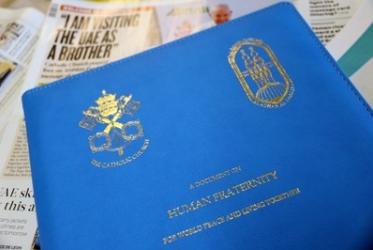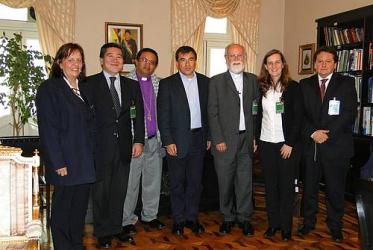Displaying 1 - 14 of 14
Thomas Kang: “Hope is what moves Christians”
21 August 2020
#WCC70: A story of life
07 June 2018
2018 Ecumenical School on Governance, Economics and Management (GEM) for an Economy of Life
19 - 31 August 2018
Mexico City, Mexico
WCC member churches commit to climate justice at COP 20
10 December 2014
Statement on global economy delivered to Bolivia
15 January 2013











